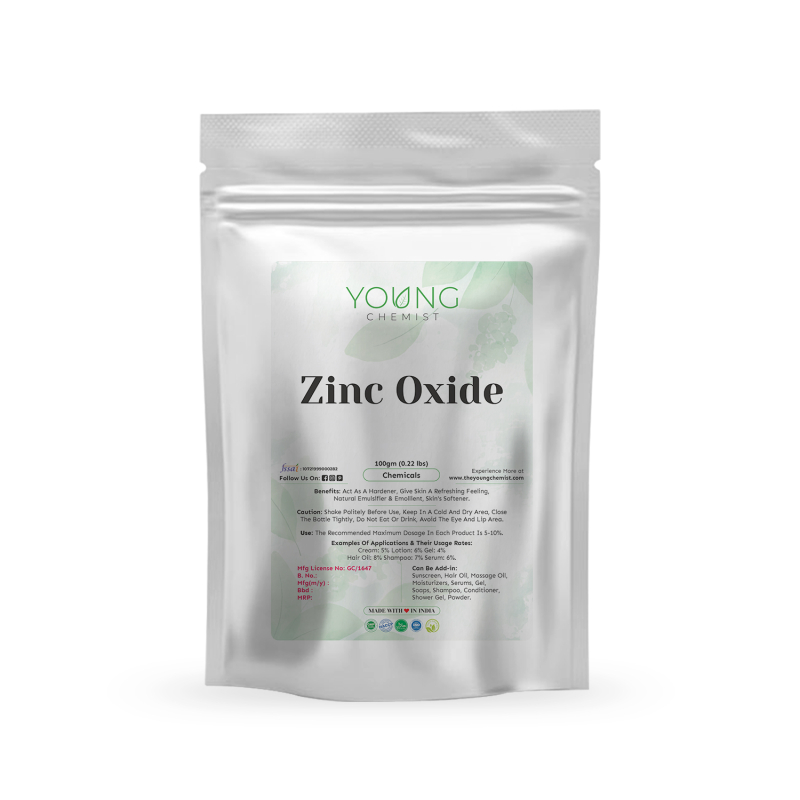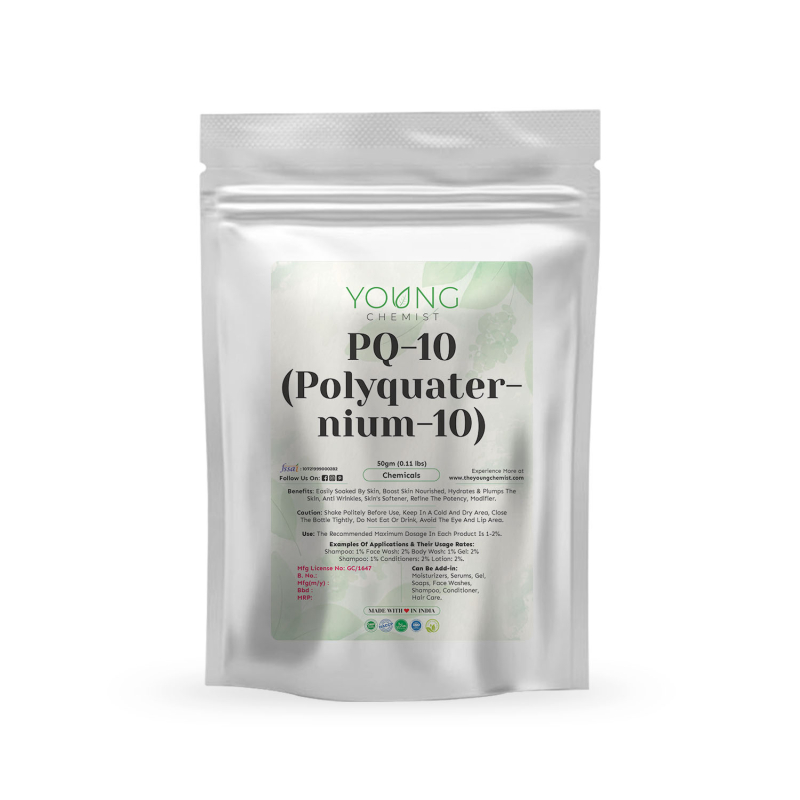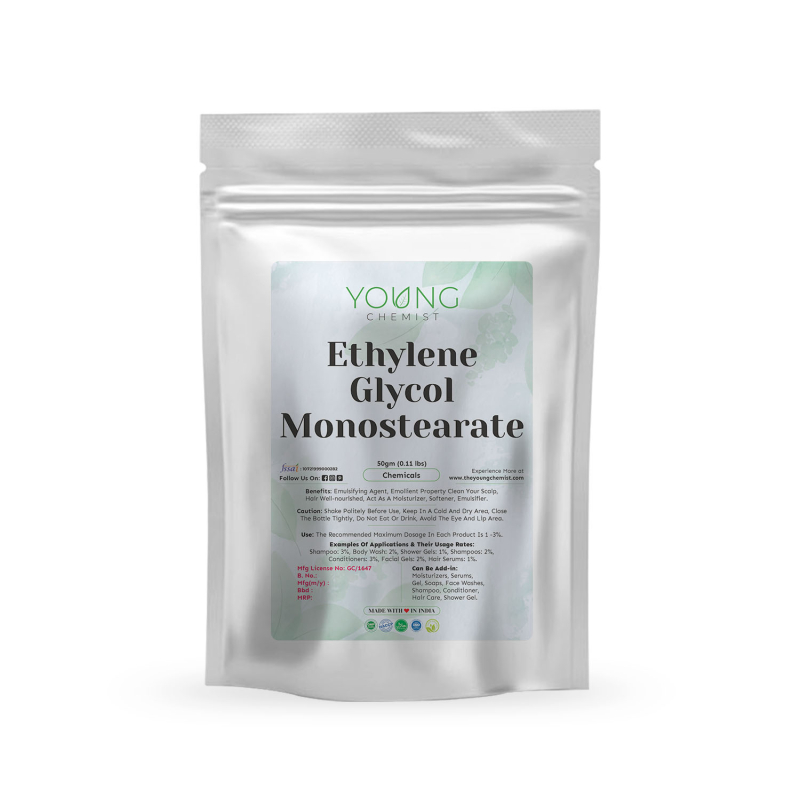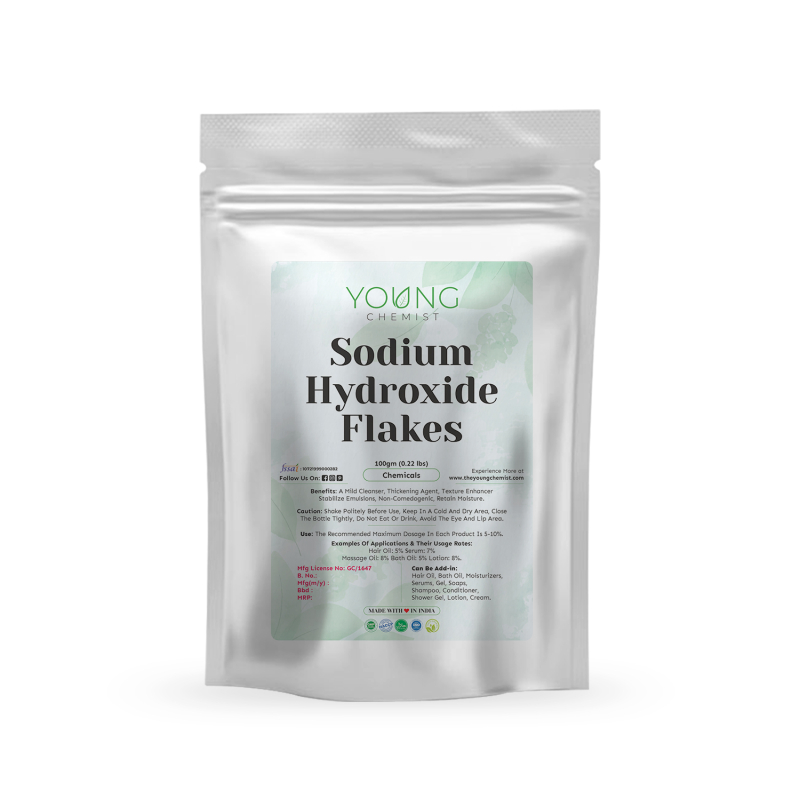-
No Item Added in Cart.
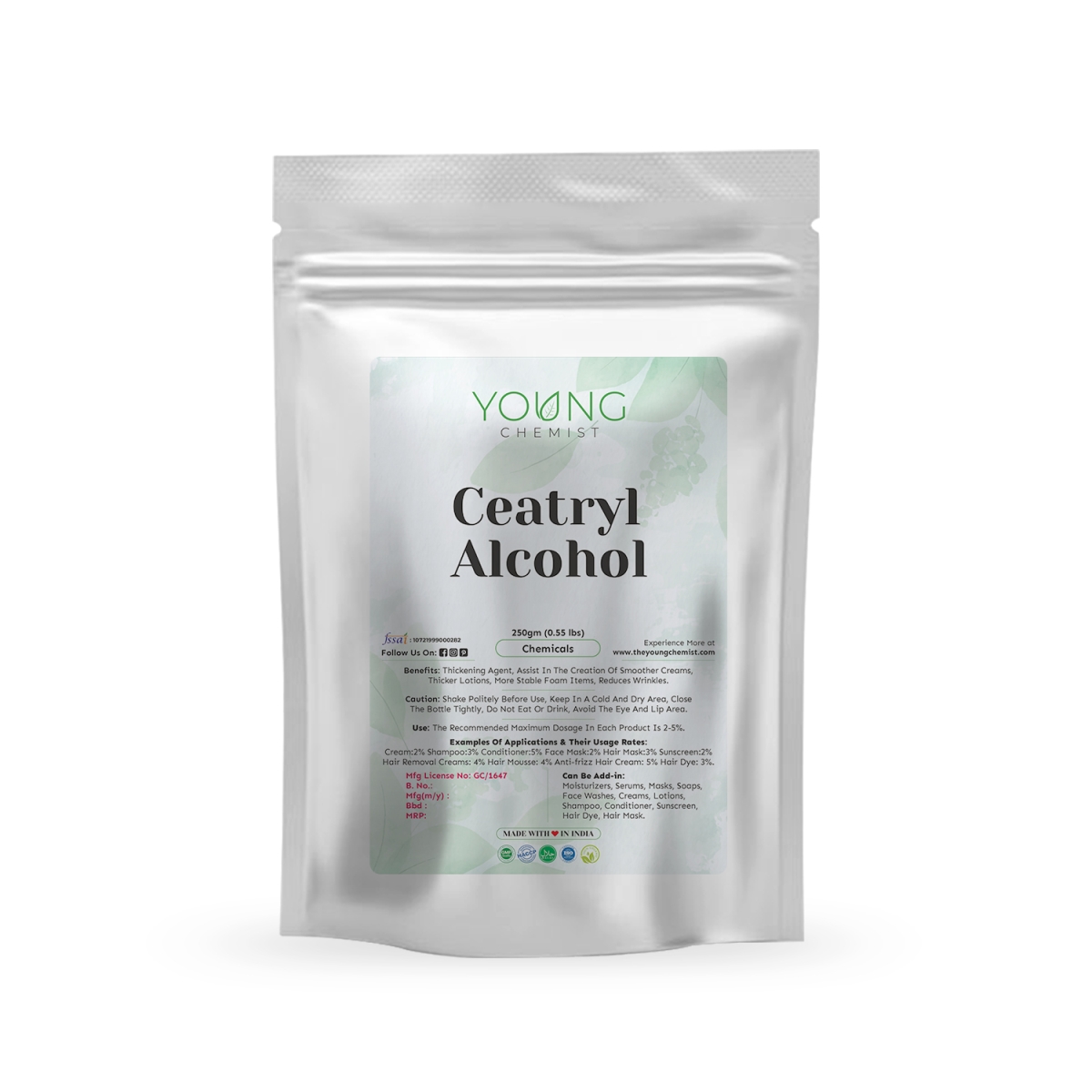
Ceatryl Alcohol
SKU: CC-EMS-CEATRYL
Size

40 customers are viewing this product



Young Chemist Cetyl Alcohol is a common cosmetic chemical that is widely used in skincare and hair care products. It is a fatty alcohol derived from natural sources such as coconut oil or palm oil. Here is a description of cetyl alcohol, its benefits, how to use it, and cautions to consider:
Cetyl Alcohol is a white, waxy substance that is solid at room temperature. It has a mild, characteristic odor and a smooth texture. Despite its name, cetyl alcohol is not an intoxicating or drying alcohol like ethanol. Instead, it is classified as a fatty alcohol due to its chemical structure, which makes it an excellent emollient and thickening agent in cosmetic formulations.
Cetearyl Alcohol is a versatile fatty alcohol (cetyl + stearyl) that delivers silky emollience, creamy viscosity, and long-lasting stability in modern skincare and haircare. Unlike drying alcohols, this skin-friendly ingredient softens and cushions, giving lotions, creams, balms, conditioners, and hair masks a plush, non-greasy feel. As a dependable thickener and co-emulsifier, Cetearyl Alcohol helps water and oils blend smoothly, improves spreadability, and supports elegant textures that hold their shape from lightweight milks to rich butters.
Formulators love Cetearyl Alcohol for enhancing rinse-off slip and after-feel, reducing drag, and boosting combability in conditioners and leave-ins. In facial and body care, it reinforces the moisture barrier, helping products feel comforting and more substantial without heaviness or waxy residue. Stable across broad pH ranges and compatible with common emulsifiers (e.g., cetearyl olivate, glyceryl stearate), it elevates both minimalist and premium formulas.
Thoughtfully sourced and hygienically packed, our Cetearyl Alcohol flakes/pellets disperse and melt easily for consistent, scalable production—ideal for brands, salons, and DIY creators seeking camera-ready textures and reliable batch performance.
Cetearyl Alcohol products for velvet slip, creamy body, and clean, stable formulation, a workhorse ingredient that makes everyday lotions, creams, and conditioners feel luxuriously professional.
| Title | Description |
|---|---|
| No specifications available. | |
Cetyl Alcohol is primarily used as an ingredient in cosmetic products rather than being used directly. It is typically found in creams, lotions, moisturizers, hair conditioners, hair styling products, and other skincare formulations. Follow the instructions provided on the specific product for optimal use.
Usage rates: Skincare 1–5% for lotion/cream body; 5–8% for rich balms. Haircare 1–4% in conditioners/masks.
Process: Add flakes/pellets to the oil phase; heat to 70–75 °C until fully melted. Combine with water phase and your primary emulsifier (e.g., cetearyl olivate + sorbitan olivate or glyceryl stearate). Homogenize, then cool with gentle stirring to build viscosity.
Tips: Pair with humectants (glycerin, hyaluronic acid) and occlusives/emollients (squalane, esters, butters) for cushion and glide. Compatible with silicones, UV filters, and most actives. Check final pH 4.5–7. Fragrance/color last.
Storage: Keep airtight, cool, dry. Label batch %, melt temp, and pH for repeatable results.
- Emollient Properties: Cetyl Alcohol has moisturizing properties that help to soften and hydrate the skin and hair. It forms a protective barrier on the skin's surface, preventing moisture loss and keeping it smooth and supple.
- Thickening Agent: This ingredient is often used to increase the viscosity and stability of cosmetic products. It helps create a rich and creamy texture in lotions, creams, and conditioners.
- Emulsifier: Cetyl Alcohol acts as an emulsifying agent, aiding in the mixing of oil and water-based ingredients in formulations. It helps create stable emulsions, allowing oil and water to blend together uniformly.
- Enhances Product Spreadability: Due to its texture and consistency, cetyl alcohol helps products spread more easily on the skin and hair, ensuring even application and coverage.
- Stability: Cetyl Alcohol helps improve the stability and shelf life of cosmetic products by preventing separation and maintaining their overall quality.
Cetearyl Alcohol is a skin-friendly fatty alcohol that adds velvety slip, creamy viscosity, and long-lasting stability to lotions, creams, conditioners, and masks. Unlike drying alcohols, it’s emollient, helping soften skin, reduce transepidermal water loss, and improve after-feel without greasiness. In haircare, it enhances combability, reduces friction, and supports rich, detangling textures. As a reliable co-emulsifier/thickener, Cetearyl Alcohol improves emulsion integrity, suspends actives, and prevents separation across broad pH ranges. Compatible with popular emulsifiers (e.g., cetearyl olivate, glyceryl stearate) and silicones/esters, it delivers plush, professional sensorials in clean-label formulas. Choose it for barrier comfort, silky glide, and camera-ready textures.
While cetyl alcohol is generally considered safe for use in cosmetic products, it's essential to be aware of the following cautions:
- Sensitivity: Some individuals may be sensitive or allergic to cetyl alcohol. If you experience any adverse reactions such as redness, itching, or irritation, discontinue use and consult a healthcare professional.
- Purity: Ensure that you are using high-quality cetyl alcohol from reputable sources to minimize the risk of impurities or contaminants.
- Usage Limitations: It is important to use cetyl alcohol within the recommended concentrations specified by the product manufacturer. Excessive use may lead to product inefficacy or potential skin irritation.
Always read and follow the instructions and warnings provided by the manufacturer or consult a dermatologist if you have specific concerns or sensitivities before using any cosmetic product containing cetyl alcohol.
Product Questions
Cetyl Alcohol is a fatty alcohol used in skincare products to moisturize and soften the skin. It also helps thicken the product and improve its texture, making it feel smooth and creamy.
Yes, Cetyl Alcohol is generally safe for all skin types, including sensitive skin. It’s non-irritating and is often used in products designed for sensitive or dry skin.
No, Cetyl Alcohol is not the same as the alcohol you might find in hand sanitizers or drinking alcohol. It’s a fatty alcohol derived from natural sources like coconut or palm oil and is safe for the skin.
Cetyl Alcohol is non-comedogenic, meaning it won’t clog your pores. In fact, it’s often used in products designed for acne-prone skin to provide moisture without causing breakouts.
Cetyl Alcohol is used in hair care products to add moisture, smooth the hair cuticle, and make the product easier to spread. It also helps reduce frizz and improve hair manageability.
Cetyl Alcohol can be vegan if it’s derived from plant sources like coconut or palm oil. Always check the product label or contact the manufacturer to confirm.
No, unlike some other types of alcohol, Cetyl Alcohol is moisturizing and helps prevent water loss from the skin, keeping it hydrated.
Yes, Cetyl Alcohol is often recommended for people with eczema or dry, sensitive skin because it’s gentle and helps lock in moisture.
Cetyl Alcohol is commonly found in lotions, creams, hair conditioners, and even some makeup products because of its moisturizing and texture-enhancing properties.
Cetyl Alcohol is biodegradable, but its environmental impact depends on how it’s sourced. Opt for products that use sustainably sourced Cetyl Alcohol to reduce environmental harm.


